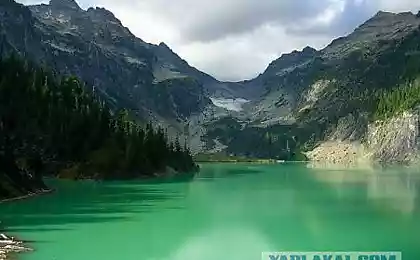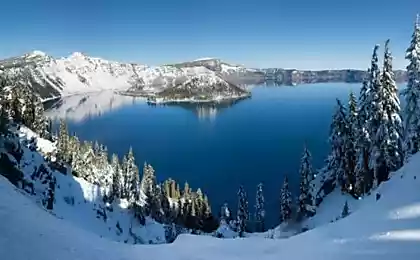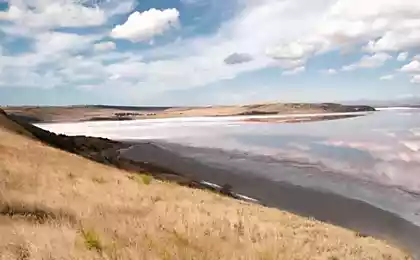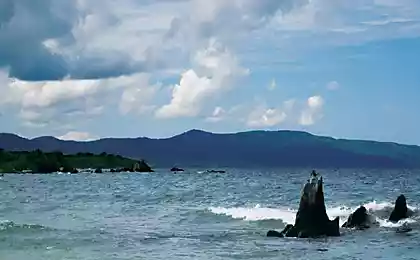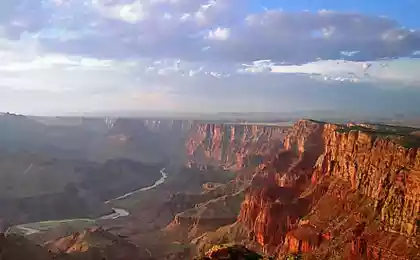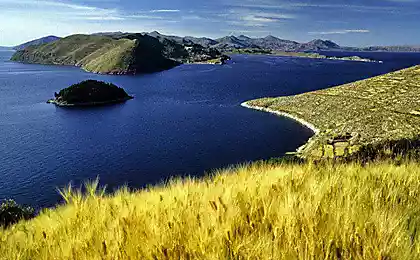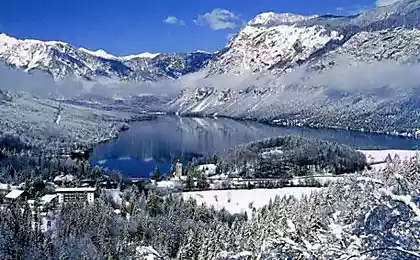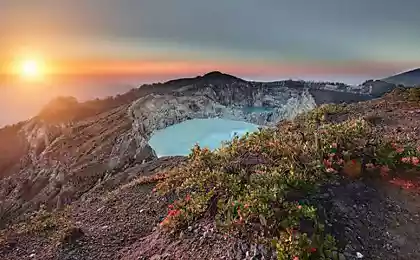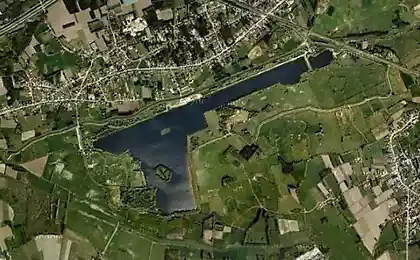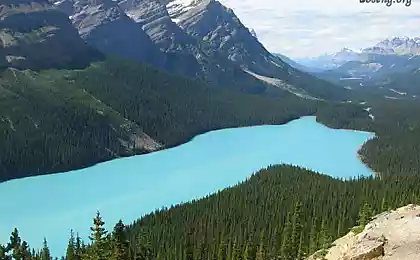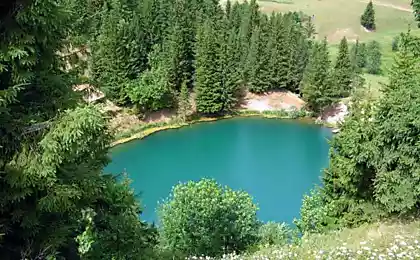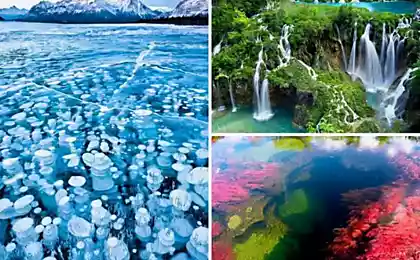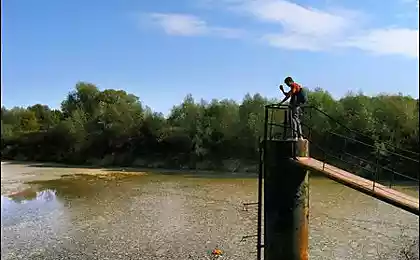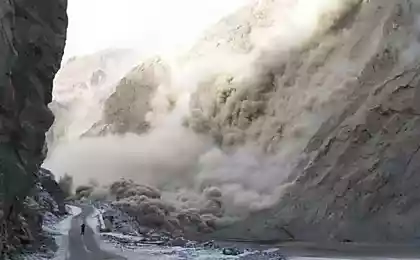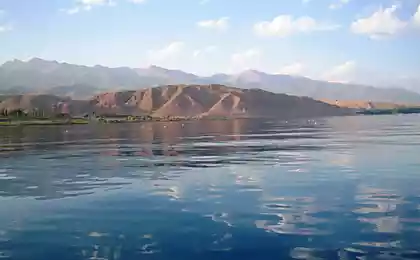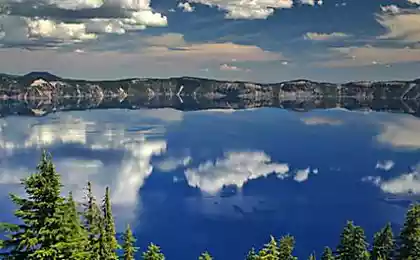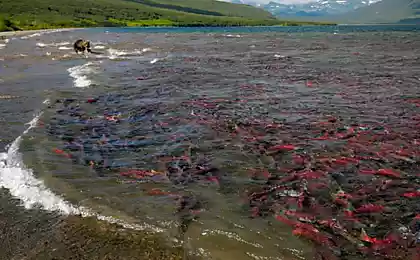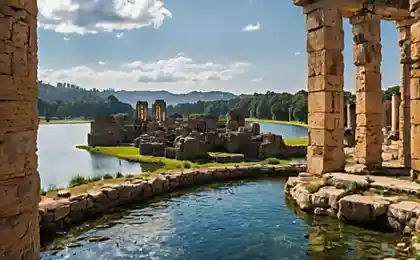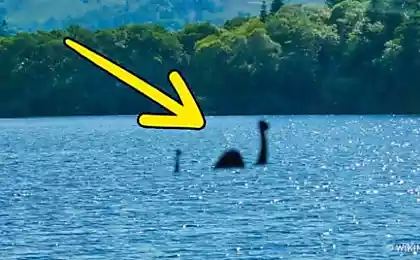1223
Methane beauty of Lake Abraham
Stunning lake Abraham is in Alberta, Canada. It looks incredibly quiet and picturesque, despite the fact that something threatening and explosive hidden beneath the surface. Crisp blue and white elements of flammable gas-methane formation resembling wool - actually frozen in the ice of the lake trapped. Spring lake thaws, the bubbles break free and rise to the top, and then hide in the atmosphere.
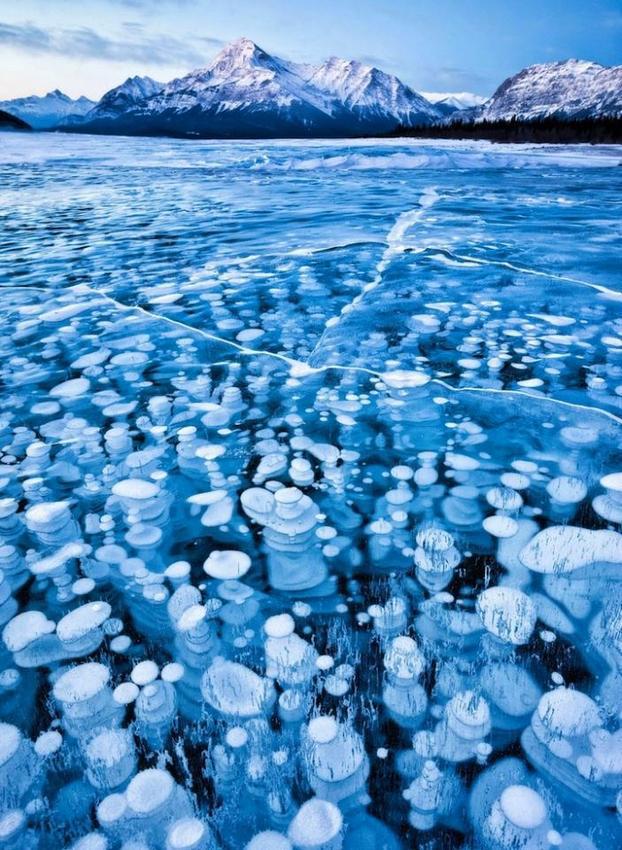
Methane in the lake was formed from the decomposition of organic substances bacteria entering the water, including: plants, leaves, trees, and animals that have died and fell into the lake. At the bottom, after the destruction of bacteria creates methane, which tends to break out.
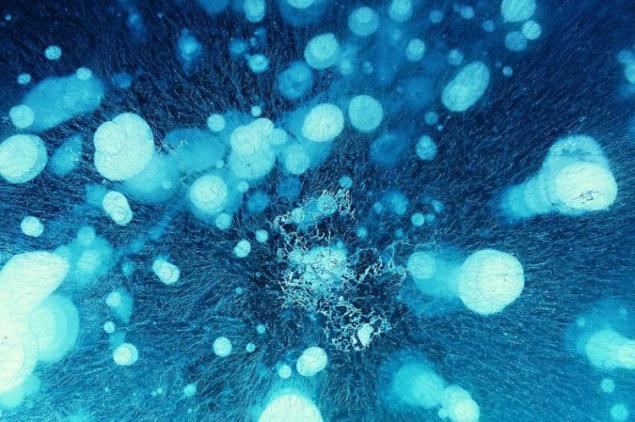
In addition to the processes described above, the artificial lake floods the land - so that the water covers the existing vegetation and soil and contributes to their degradation. This process is accelerated due to sewage farms near.
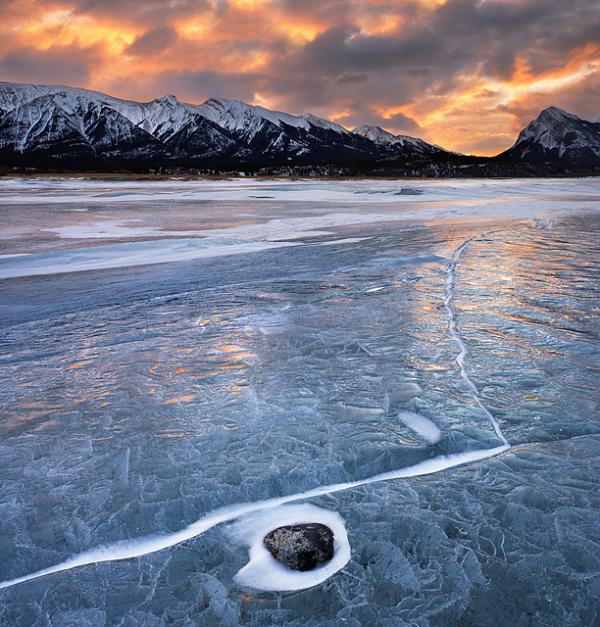
When the lake is frozen Abraham, the accumulation of methane are trapped and takes the form of white substance known as methane hydrate. Once the thaw begins, methane released from the trap, and comes to the surface.
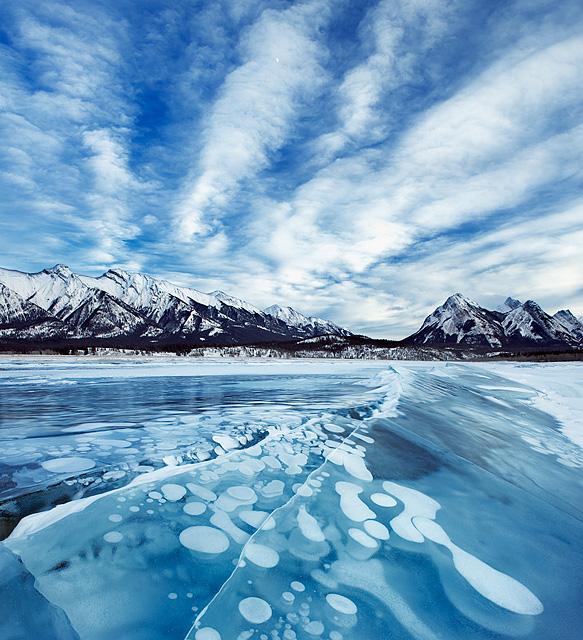
This process occurs not only in the lake Abraham, but also in many lakes of the Arctic region. Methane is a potent greenhouse gas that is 20 times more impact on climate change than the same amount of carbon dioxide over a 100-year period.
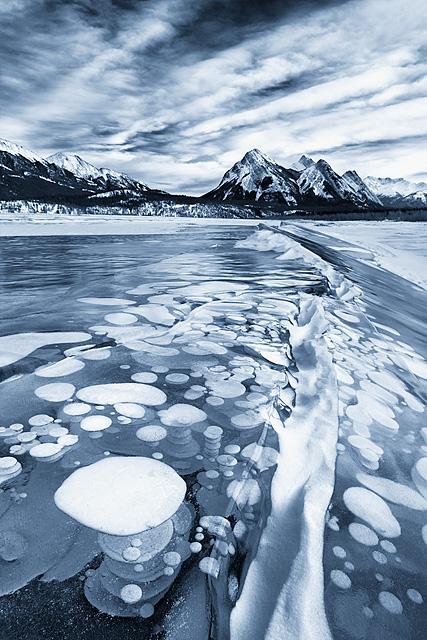
To prove that the gas released from the lake - methane, ecologists from the University of Alaska Fairbanks conducted a series of experiments, one of which is as follows: researcher poured warm water on the ice, and then used the tool to create a hole, and then set fire to the formed hole. As a result, the gas exiting from the ice - he burned.
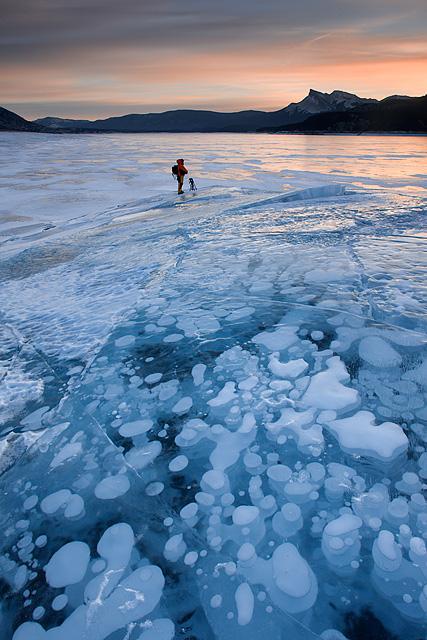
Unique frozen lake Abraham attracts many tourists and photographers, but even knowing that ice thickness of 8-10 cm. It is very difficult to walk on its surface.
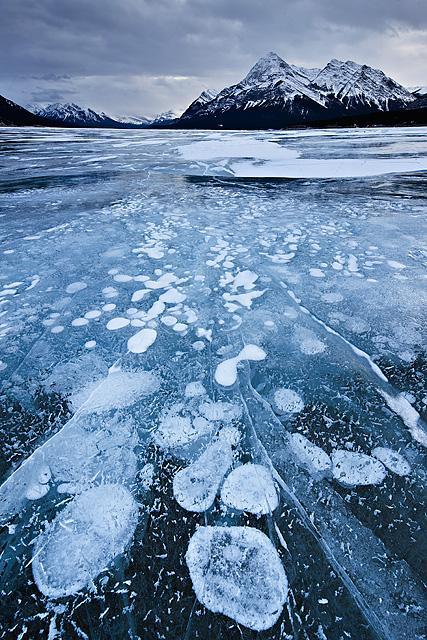
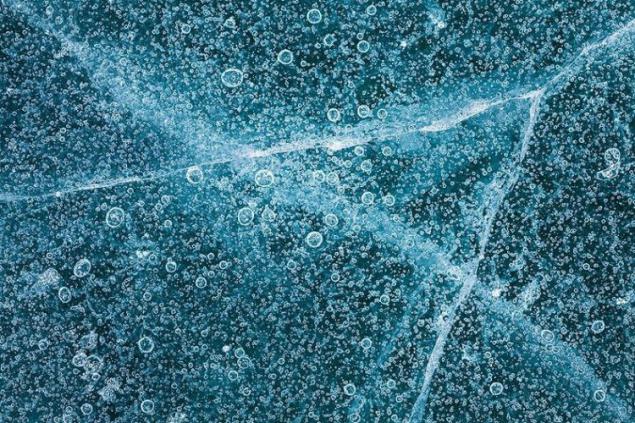
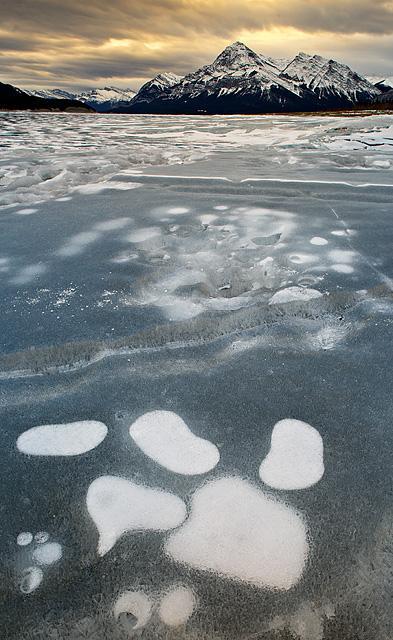
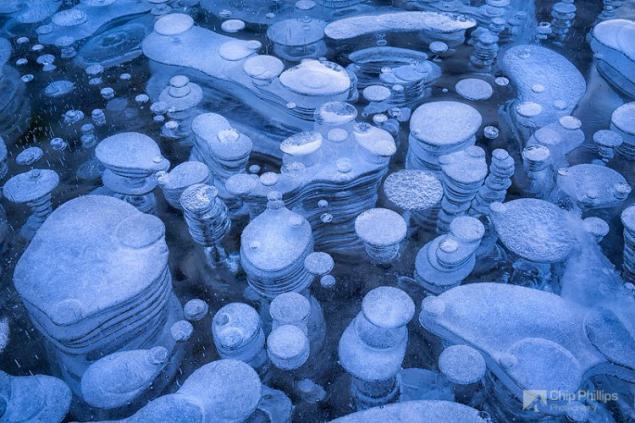
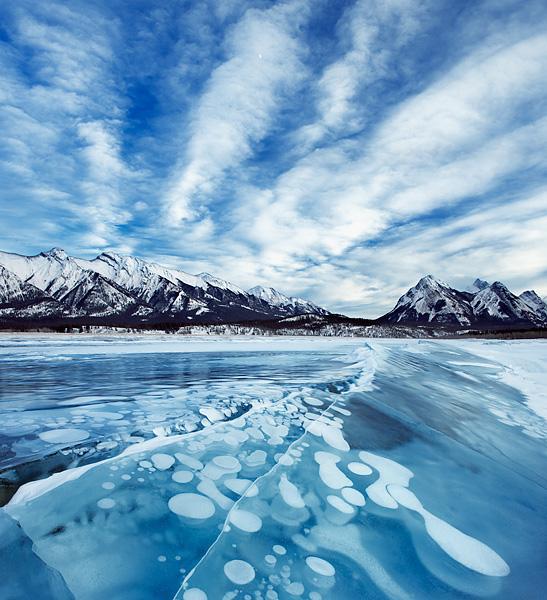

Methane in the lake was formed from the decomposition of organic substances bacteria entering the water, including: plants, leaves, trees, and animals that have died and fell into the lake. At the bottom, after the destruction of bacteria creates methane, which tends to break out.

In addition to the processes described above, the artificial lake floods the land - so that the water covers the existing vegetation and soil and contributes to their degradation. This process is accelerated due to sewage farms near.

When the lake is frozen Abraham, the accumulation of methane are trapped and takes the form of white substance known as methane hydrate. Once the thaw begins, methane released from the trap, and comes to the surface.

This process occurs not only in the lake Abraham, but also in many lakes of the Arctic region. Methane is a potent greenhouse gas that is 20 times more impact on climate change than the same amount of carbon dioxide over a 100-year period.

To prove that the gas released from the lake - methane, ecologists from the University of Alaska Fairbanks conducted a series of experiments, one of which is as follows: researcher poured warm water on the ice, and then used the tool to create a hole, and then set fire to the formed hole. As a result, the gas exiting from the ice - he burned.

Unique frozen lake Abraham attracts many tourists and photographers, but even knowing that ice thickness of 8-10 cm. It is very difficult to walk on its surface.





